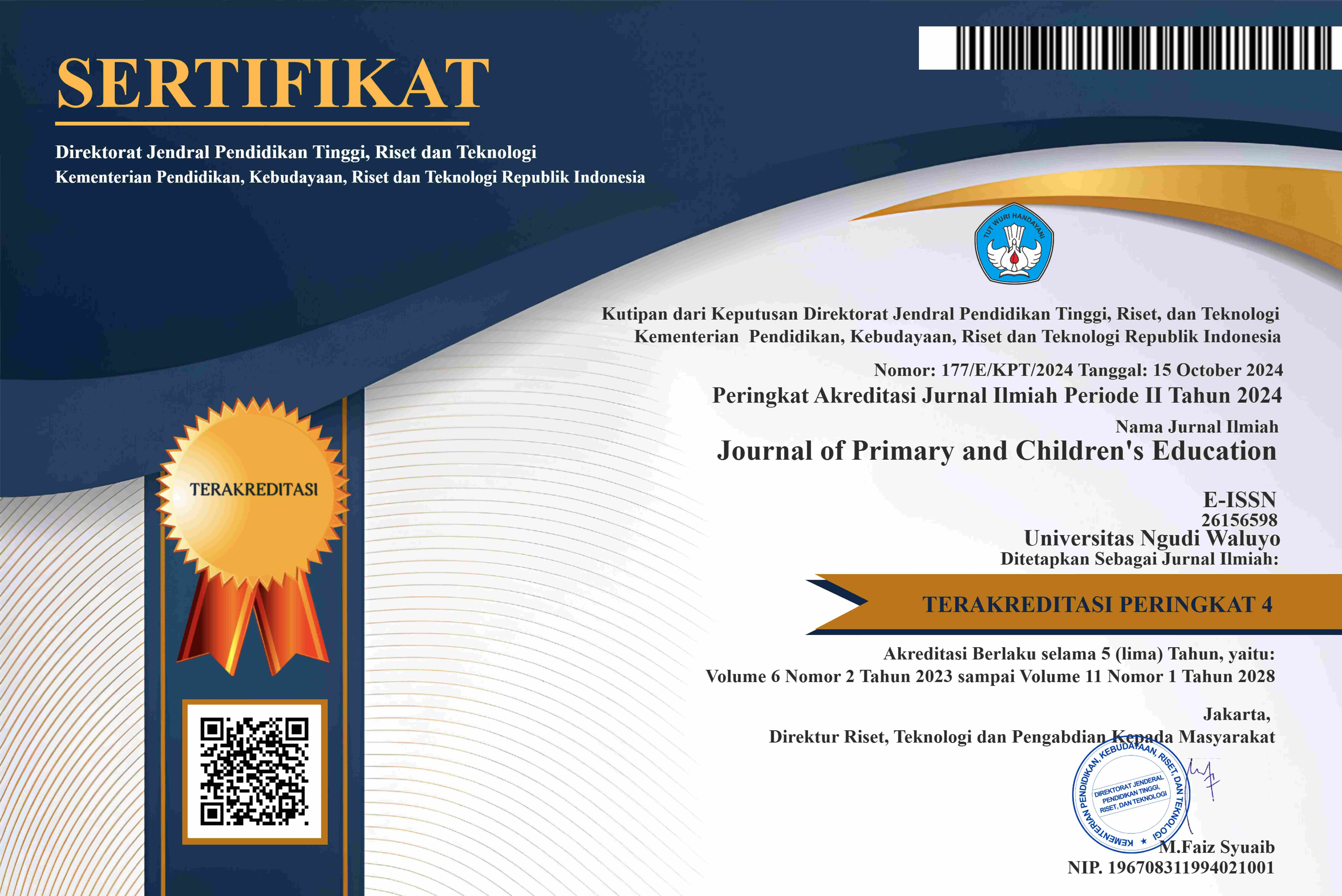Peran Media Utama Citaku Terhadap Kertampilan Berfikir Peserta Didik Kelas IV SD
DOI:
https://doi.org/10.35473/jnctt.v3i2.382Abstract
Education using the 2013 curriculum must be able to improve students' skills and values that apply in society. Critical thinking skills, among others, that must be possessed by students to support students' thinking and self-development. For this reason the need for innovation and good creativity from the teacher so that students get the goals that have been designed in learning. In learning, teachers usually still use conventional learning systems and are not added to the media. These impacts cause students to be unenthusiastic, enthusiastic about learning and even result in actual skills emerge and will increase students' potential to sink. Therefore teachers must design and create media to improve students' critical thinking skills. These media UTAMA CITAKU media which have a role in improving students' critical thinking skills.
References
Ahmadi Abu, Supriyono Widodo. 2013. Psikologi Belajar. Jakarta: PT Asdi Mahasatya.
Amin. 2005. Penerapan Pembelajaranâ€Guide Discovery Inquiry Laboratory Lessonâ€Untuk Meningkatkan Mutu KBM Siswa. Jurnal Pendidikan Fisika Indonesia, 3( 3):200-207
A.Sochibin,Dwijananti,(dkk). 2009. Penerapan Model Pembelajaran Inkuiri Terpimpin untuk Peningkatan Pemahaman dan Keterampilan Berpikir Kritis Siswa SD†Jurnal Pendidik Fisika Indonesia (5): 96-101
Hamdani. 2011. Dasar-Dasar Kependidikan. Bandung: CV Pustaka Setia.
Sugiyono. 2015. Metodologi Penelitian Pendidikan Pendekatan Kuantitatif, Kualitatif, dan R&D. Bandung: Alfabeta.
Published
How to Cite
Issue
Section
License
Copyright notice:
- Authors retain copyright and grant the journal right of first publication with the work simultaneously licensed under Creative Commons Attribution License that allows others to share the work with an acknowledgement of the work's authorship and initial publication in this journal.
- Authors are able to enter into separate, additional contractual arrangements for the non-exclusive distribution of the journal's published version of the work (e.g., post it to an institutional repository or publish it in a book), with an acknowledgement of its initial publication in this journal.
- Authors are permitted and encouraged to post their work online (e.g., in institutional repositories or on their website) prior to and during the submission process, as it can lead to productive exchanges, as well as earlier and greater citation of published work (The Effect of Open Access)







